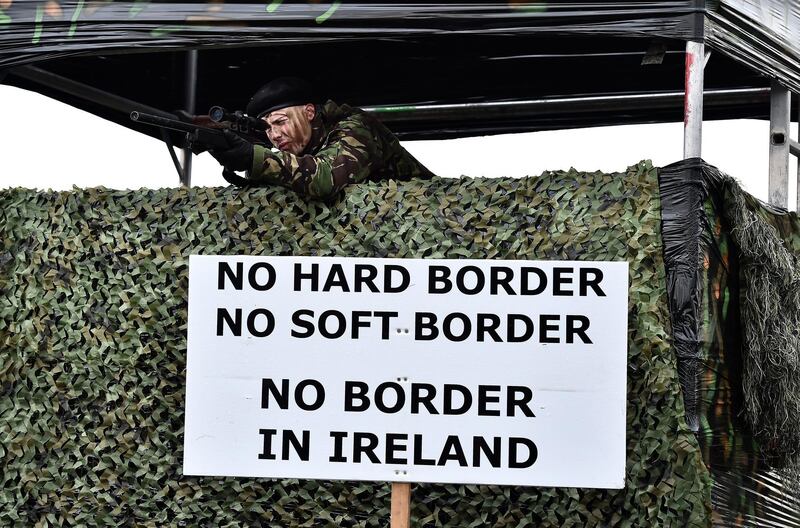The prospect of Brexit without a deal has pushed the UK military into a buying spree to fill up army warehouses.
The government is stockpiling food, fuel, spare parts and ammunition at UK military bases in Gibraltar, Cyprus, the Falklands as well as at UK sites to avoid supply disruptions in the event of the country crashing out of the European Union without an agreement, Sky News reported. Military chiefs have spent at least £23 million on "forward-purchased" goods, it said.
Operation Yellowhammer is aimed at keeping sailors, soldiers and pilots fed and equipped should the lack of a deal with the EU after March 29 lead to shortages of key items, the channel reported.
_______________
Read more:
Queen Elizabeth urges unity in veiled Brexit message
_______________
“The Ministry of Defence routinely undertakes contingency planning, and it is absolutely right that the government ensures we are prepared and resourced for a range of scenarios when we leave the EU. We are working closely with industry partners, key suppliers and across government to ensure that essential defence tasks would not be affected by a no-deal Brexit,” a spokesperson said on Saturday by email.
“As part of wider contingency planning, we have forward-purchased a limited range of general commodities to ensure we can continue to function in the event of any supply chain disruption.”
Meanwhile, protesters shut down a border road between Ireland and Northern Ireland on Saturday, erecting a concrete wall with mock-military checkpoints to illustrate the violent unrest a hard Brexit could bring to the fragile region.
Locals hauled towering concrete barriers into place and installed a customs hut defended by a watchtower manned by men dressed as armed British troops – evoking haunting memories of the three decades of bloodshed known as the Troubles.
“It’s actually to remind some of our younger generation exactly the way things were 25 years ago,” said John McNamee, an activist with group Border Communities against Brexit.
“This is what it was about and we certainly don’t want it back,” he said.
During the Troubles the area was militarised as republican and unionist paramilitaries and the British military vied for control.
More than 3,600 were killed before the Good Friday Agreement of 1998 ended the conflict and effectively dissolved the border between the British province of Northern Ireland and the Republic.
After a rally calling on Westminster to avoid the return of a hard border along the 500-kilometre boundary, locals smashed down the mock wall using sledgehammers in a jubilant atmosphere.
They also took heavy machinery to the watchtowers as the British troops intervened in a dramatic act of “street theatre”, designed to illustrate tensions that could return to the region following the hard-won peace.
“We’re 60 days out from the reality of Brexit with or without a deal,” said Border Communities Against Brexit organiser Tom Murray.
“Without a deal there may be the imposition of a border. This is a visual representation of the potential of the worst- case scenario,” he said.
The British parliament is in deadlock, unable to pass a withdrawal deal that would rule out the need for border checks.
If Britain quits the EU without an accord on 29 March, there are concerns infrastructure will be needed to enforce customs and regulations at the new edge of the trading bloc.
"It would be fairly tough on our daily life," said protester Aaron Crilly – whose family is split between the two territories.
On Friday, Irish Prime Minister Leo Varadkar told Bloomberg TV that the border may “involve people in uniform” as well as “cameras, physical infrastructure, possibly a police presence, or an army presence to back it up”.






